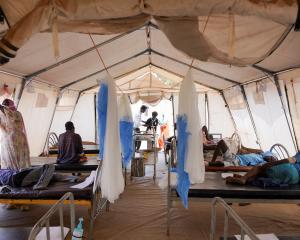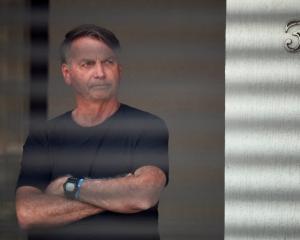His own desire to avoid humiliation gets in the way of rapid disengagement from a losing battle, which is why he waited until two days before last Sunday's Ukrainian presidential election to say that he would respect the result.
And even then he said ''respect'', not ''recognise''.
The Ukrainian election went well.
Petro Poroshenko, a minor-league oligarch with business interests in Russia, won convincingly in the first round, and 60% of voters actually showed up at the polls.
Even in Donetsk province, where most city centres are occupied by separatist gunmen, seven out of 12 district electoral commissions were able to operate normally.
It's a good start on stabilising the country.
So why didn't Mr Putin just say ''recognise'', when that is clearly what he will have to do in the end if Russia and Ukraine are to have peaceful relations?
Why prolong the uncertainty about his intentions in the West, where the belief that he is an ''expansionist'' bent on recreating the Russian/Soviet empire takes deeper root with each passing day?
The answer is pride - and Russia will pay a significant price for Mr Putin's pride.
Last week, Prince Charles, heir to the British Throne, enlivened his royal tour of Canada by telling an elderly Polish immigrant that Hitler's relentless takeover of European countries in the 1930s was ''not unlike what Mr Putin is doing now''.
Prince Charles is well known for saying silly things, but what he said in Canada sounded quite sensible to many people in the West.
That is a big problem for Mr Putin.
Mr Putin's seizure of Crimea from Ukraine, though completely illegal, was not the first step in his plan for world conquest.
That is preposterous: Russia is a relatively poor country of only 140 million people.
But it is a regrettable fact of life that the Hitler analogy has a powerful grip on the popular imagination throughout Europe and North America, and Mr Putin's aimless belligerence has been setting him up in Western minds as the next Hitler.
He was very cross when his tame Ukrainian president, Viktor Yanukovych, was overthrown by protesters after he obeyed Mr Putin's demand to break off trade talks with the European Union.
Mr Putin punished Ukraine by annexing Crimea, and he started doing some heavy breathing about Ukraine's eastern provinces as well.
He encouraged pro-Russian gunmen to seize government buildings in eastern Ukraine and warned that he might intervene militarily if the Ukrainian Government used force against them.
He moved 40,000 troops up to Ukraine's eastern border on ''exercises''.
It was quite pointless, since he could neither annex the eastern provinces nor remove the Ukrainian Government without actually invading, but he was very cross.
Three months of that, and the damage to his and Russia's image is starting to pile up.
Simple-minded people like Prince Charles talk about a new Hitler.
Terrified Poles, Estonians and other Eastern Europeans who used to live under the Soviet yoke fear that they might be next and demand Nato troops on their soil.
And clever people in the Western military-industrial complexes see an opportunity to sell more of their wares.
So at last, in early May, Mr Putin sobers up and calls off the fright campaign.
He says that the Ukrainian election could be a move ''in the right direction''.
He publicly urges the pro-Russian gunmen in Donetsk and Luhansk provinces to postpone a planned referendum on union with Russia.
He even says that he is withdrawing his troops from Ukraine's borders.
But he doesn't really withdraw the troops yet.
He doesn't use his influence to force the separatist gunmen in eastern Ukraine to postpone their referendum, and he doesn't actually say that he will recognise the Ukrainian election as legitimate.
Mr Putin wants to walk away from the game, but it's too embarrassing to do a complete about-face. So he leaves the pot of fear and suspicion boiling for another three weeks.
Finally, only two days before the Ukrainian election, Mr Putin says he will ''respect'' the result, and his tanks start to pull back from Ukraine's border. Too damned late.
There won't be any more Western sanctions against Russia, but Mr Putin has managed to resurrect the image of Russia as a mortal threat to its neighbours.
It will not lie down again soon.
European defence budgets will stop falling, and the integration of the armed forces of the various new Nato members in Eastern Europe will accelerate.
Leading-edge technologies like missile defence will get more funding in the United States.
Foreign investment in Russia is already declining.
And the countries of the European Union will move heaven and earth to cut their dependence on Russian gas exports.
Mr Putin has already turned to China as a new customer for Russian gas, but it will never pay as well as Europe did.
He used to be able to play the Europeans and the Chinese off against each other, but that game is over.
Nato sees him as a wild card at best, and at worst a real threat.
• Gwynne Dyer is an independent London journalist.













